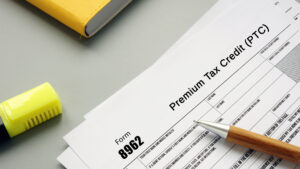
A New Orleans CPE conference with Western CPE offers focused mornings and lively evenings, making
4 min read
EXTENDED UNTIL MONDAY – Celebrate Mardi Gras with up to 50% off our New Orleans conference

In Derell Smith, the court addressed a fundamental question that often challenges tax practitioners: What documentation is required to claim depreciation on property converted from personal to rental use?
Smith received a Notice of Deficiency dated November 8, 2021, for his 2018 tax year. Although he resolved most issues raised in the notice, one matter remained in dispute: a depreciation deduction claimed on his 2018 return, which was filed approximately five years late on March 11, 2024, after the Notice of Deficiency was issued.
The Los Angeles property at issue had a complex ownership history:
Smith inadequately documented two critical values: (1) the fair market value of the property at the time of conversion to rental use, and (2) the property’s adjusted basis at conversion.
Under §167(a), taxpayers may claim a depreciation deduction for the exhaustion and wear and tear of property held for the production of income. To substantiate this deduction, a taxpayer must establish the property’s depreciable basis by showing its cost, useful life, and any previously allowed or allowable depreciation.
When property originally held for personal use is later converted to income-producing use, Reg. §1.167(g)-1 specifies that the basis for computing depreciation is the lesser of:
The Tax Court denied Smith’s claimed depreciation deduction because he failed to adequately establish the fair market value or the adjusted basis of the property at the time of conversion. Smith relied on real estate valuation sources from 2024 to retroactively estimate the property’s fair market value at the time of conversion—a method the court described as a “guestimate” which failed to satisfy the requirements of §167 and Treas. Reg. § 1.167(g)-1.
Even if the court had accepted his fair market value estimate, Smith’s claim would still have failed due to inadequate documentation of the property’s basis. The court determined how Smith acquired his interest in the rental property from his brother, which created too many uncertainties in determining the property’s adjusted basis. This made it impossible to perform the necessary basis computation required by regulations.
Contemporaneous documentation is essential: Retroactive “guestimates” using resources available years later will be rejected by the Tax Court. Maintain proper records at the time of conversion, including property settlement statements, and deed transfers.
Family property transfers require special attention: For shared family property transactions, document the transfer thoroughly, including the property’s basis at the time of transfer and any adjustments that affect the basis.
Both values matter under §1.167(g)-1: When calculating depreciation for converted property, you must document both the fair market value and adjusted basis at conversion, as the regulation requires using the lesser of these two values.
Professional appraisals have value: Obtain an appraisal at the time of conversion to substantiate fair market value claims.
The Tax Court’s decision reinforces that depreciation deductions require more than good-faith efforts—they demand contemporaneous, specific evidence of both fair market value and adjusted basis at conversion. As tax planning practitioners, we should implement a rigorous documentation protocol, including professional appraisals, detailed records of improvement costs, and clear ownership transfer documentation. Without an evidentiary foundation, even economically legitimate depreciation deductions could be disallowed, turning profitable rental activities into taxation nightmares.






Subscribe to our news, analysis, and updates to receive 10% off your first purchase of an on-demand digital CPE course.